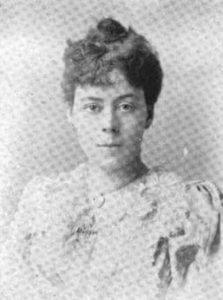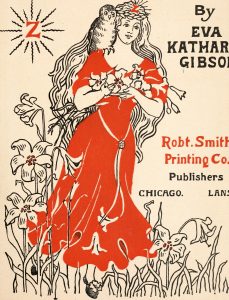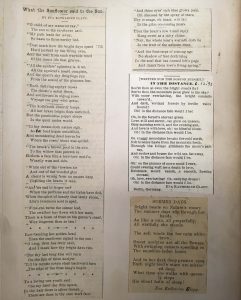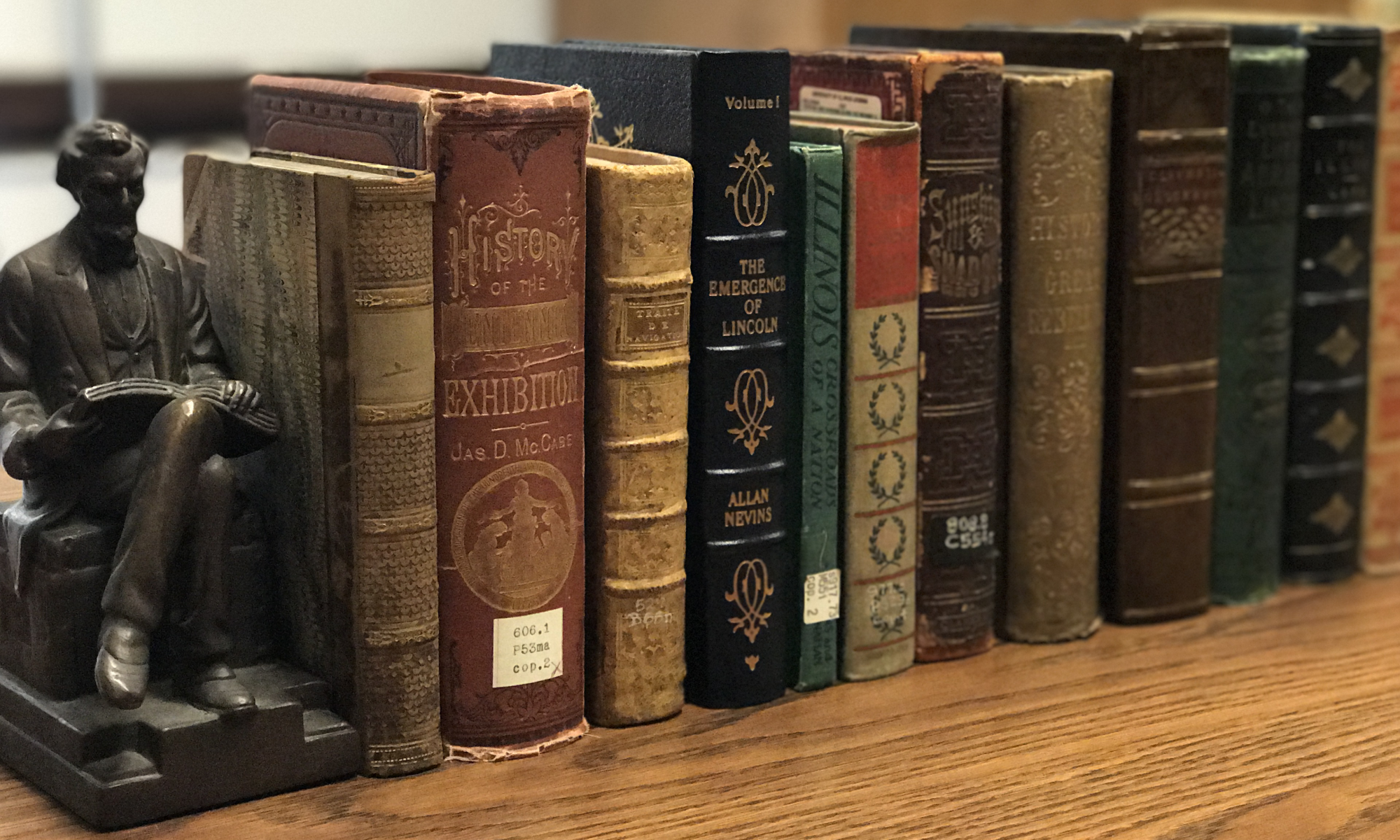 Eva Katharine Clapp Gibson was a writer born in Bradford, Illinois, on August 10, 1857. Gibson lived on her family’s farm for the first eleven years of her life with her parents, Henry and Ann (Ely) Clapp; when her mother passed away when Gibson was eleven, she went to live with her married sister. Gibson attended school at Amboy, Illinois, the Dover Academy, and later the Milwaukee Female College. At the age of sixteen, Gibson went to visit cities in the eastern U.S. and decided to teach school in western Massachusetts before returning to Illinois. In 1892 she married Charles Brockway Gibson, a chemist from Chicago who attended the University of Illinois, and she studied German and French literature for a year in Europe before the couple settled in Chicago.
Eva Katharine Clapp Gibson was a writer born in Bradford, Illinois, on August 10, 1857. Gibson lived on her family’s farm for the first eleven years of her life with her parents, Henry and Ann (Ely) Clapp; when her mother passed away when Gibson was eleven, she went to live with her married sister. Gibson attended school at Amboy, Illinois, the Dover Academy, and later the Milwaukee Female College. At the age of sixteen, Gibson went to visit cities in the eastern U.S. and decided to teach school in western Massachusetts before returning to Illinois. In 1892 she married Charles Brockway Gibson, a chemist from Chicago who attended the University of Illinois, and she studied German and French literature for a year in Europe before the couple settled in Chicago.
Gibson began writing at an early age and wrote her first story, a novel called Her Bright Future, around the age of twenty. This story drew largely from her life, and approximately thirty thousand copies were sold. After that she published four other works – A Lucky Mishap, Mismated, A Woman’s Triumph, and A Dark Secret – in the course of six years. In 1901 Gibson published a collection of poems titled Songs of Red Rose Land and a collection of historical sketches titled Famous Lovers. Throughout her writing career Gibson wrote many short stories and sketches and did editorial work in Chicago.
 Gibson is best known for her book Zauberlinda, the Wise Witch. Published in 1901, this book was a pastiche of Frank Baum’s The Wonderful Wizard of Oz. The success of the first Oz book inspired other authors and artists to attempt to replicate the style with Oz-inspired plots and designs. Gibson’s novel is considered the earliest example of this trend, with her book published just a year after Baum’s. The story follows a young girl named Annie who lives in South Dakota and travels to the Gnome kingdom where she experiences magic and adventure. The book features numerous illustrations by Mabel Tibbitts that follow the monochromatic style of the first Oz book with pictures appearing under and around the text. Zauberlinda was the only novel Gibson wrote specifically for children.
Gibson is best known for her book Zauberlinda, the Wise Witch. Published in 1901, this book was a pastiche of Frank Baum’s The Wonderful Wizard of Oz. The success of the first Oz book inspired other authors and artists to attempt to replicate the style with Oz-inspired plots and designs. Gibson’s novel is considered the earliest example of this trend, with her book published just a year after Baum’s. The story follows a young girl named Annie who lives in South Dakota and travels to the Gnome kingdom where she experiences magic and adventure. The book features numerous illustrations by Mabel Tibbitts that follow the monochromatic style of the first Oz book with pictures appearing under and around the text. Zauberlinda was the only novel Gibson wrote specifically for children.
On December 30, 1903, Gibson attended the production of Mr. Blue Beard that resulted in the infamous Iroquois Theatre fire, the deadliest theater fire in U.S. history that killed over 600 people. Gibson was attending the performance with a friend, Emma Schweitzler, and they were seated in the fifth row of the orchestra circle. Both women survived the disaster – Schweitzler was the last woman to walk out unassisted from the first floor and Gibson was carried out with burns. The two were seated towards the middle of the row and had to wait for others to exit before they could move. When they reached the aisle, someone stepped on Gibson’s dress, causing her to fall and be trampled by other theater-goers making their escape towards the exit. Gibson was able to crawl on her hands and knees towards the exit where she was eventually assisted.

The Eva Katharine Clapp Gibson Collection (MS 650) contains correspondence, poems, stories, and other works from her writing career. Her stories and poems were published in a variety of magazines and newspapers, and this collection includes a scrapbook of compiled clippings, along with other handwritten and typed work. Gibson also wrote the lyrics for “The Anthem of the Free,” a patriotic march about the Spanish-American War soldiers composed by Walton Perkins. The only known copies of the sheet music are in this collection.
You can also see Gibson’s published novels in the IHLC’s holdings, including a copy of Her Bright Future (Call number: 813 G35h) that Gibson inscribed to her sister-in-law, her 1885 book A Woman’s Triumph (Call number: 813 G35w), and her 1901 book Zauberlinda, The Wise Witch (Call number: 813 G35).
Other Resources
American Women: Fifteen Hundred Biographies with over 1,400 Portraits. Edited by Frances E. Willard and Mary A. Livermore. New York, NY: Mast. Crowell & Kirkpatrick, 1897.
Everett, Marshall. Chicago’s Awful Theater Horror. Memorial Publishing Co., 1904.
The Magazine of Poetry: A Quarterly Review. Edited by Charles Wells Moulton. Buffalo, NY: C. W. Moulton, 1893.
Who’s Who in America. Edited by John W. Leonard. Chicago, IL: A. N. Marquis & Company, 1901.
